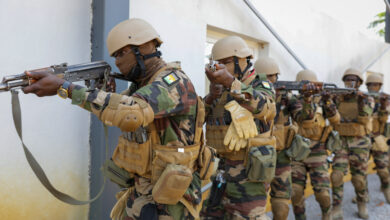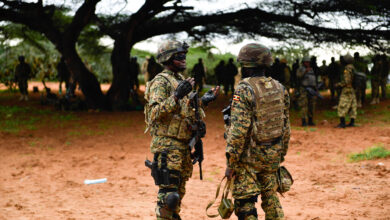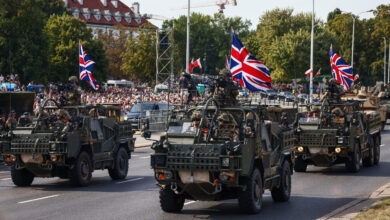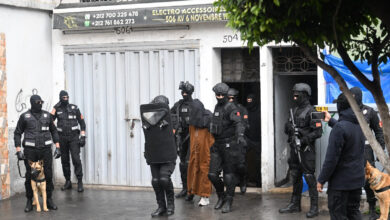The United Kingdom will in 2020 deploy 250 military personnel to the United Nations peacekeeping mission in Mali, defense secretary Penny Mordaunt announced on Monday, July 22.
“Based in Gao, 250 personnel will deploy in response to a U.N. requirement and will address a key capability gap,” a Ministry of Defense release said.
Initially deploying for three years, the U.K. personnel “will deliver a long-range reconnaissance capability, providing greater awareness of possible threats and contributing to the protection of civilians.”
“This targeted contribution will be complemented by U.K. staff officers in the U.N. mission headquarters and new training programmes with troops from other partnering nations who will be deploying to the U.N. operation,” the release said.
The release noted that the deployment aims to prevent “conflict spilling over to neighbouring states.”
“This deployment will help address the increasing instability in the region, its impact along the West African coast and the threat to Southern Europe,” the release said.
The MINUSMA stabilization mission in Mali which began in 2013 is considered one the most dangerous U.N. peacekeeping missions, and attacks against blue helmets in the center and north of the country are common. More than 200 people deployed to MINUSMA have died, including 18 this year.
The new deployment could see British troops working alongside Irish special forces. Ireland’s parliament in June approved a government request to send the elite Army Ranger Wing to Mali. A team of 14 personnel will rotate every four months for two years, the Irish Times reported.

RAF supports French mission in the Sahel
British forces are already deployed to Mali, but they are attached to the France-led Operation Barkhane counter-terrorism mission in the Sahel.
Three U.K. Royal Air Force Chinook heavy lift helicopters are based in Gao in eastern Mali, and have supported Operation Barkhane since becoming operational last August.
On July 8, outgoing U.K. Prime Minister Theresa May said the British military deployment will be extended, with the Ministry of Defence later confirming that the extension will be for at least six months.
RAF Chinooks resupplied French and partner troops during Operation Aconit, which targeted Islamic State militants in Mali and Niger between between June 7 and 19.
Insurgency in the Sahel
In 2012 a Tuareg separatist uprising against the state was exploited by Islamist extremists linked to al-Qaeda who took key cities in the desert north of Mali.
France began its Operation Serval military intervention in its former colony early the next year, driving the jihadists from the towns, and the MINUSMA peacekeeping force was then established.
But the militant groups morphed into more nimble formations operating in rural areas, and the insurgency has gradually spread to central and southern regions of Mali and across the borders into neighboring Burkina Faso and Niger. Large swathes of Mali remain outside government control.
The French mission evolved in August 2014 into the current 4,500-strong Operation Barkhane, which has a mandate for counter-terrorism operations across the Sahel.
In addition to the RAF Chinooks, 50 Estonian soldiers are deployed in Gao in a force-protection capacity.
In February, the Danish government said that it plans to send two transport helicopters to support Operation Barkhane. The government’s plans must be approved by parliament, and the deployment would see around 70 soldiers deployed for a one-year period starting at the end of 2019.
Troops deployed to Barkhane work alongside other international operations, including the roughly 14,000-strong MINUSMA mission in Mali, and the regional G5 Sahel joint counter-terrorism force that aims to train and deploy up to 5,000 personnel from the five members – Burkina Faso, Chad, Mali, Mauritania and Niger.
Sahel states need more support to fight extremism, UN chief Guterres says












